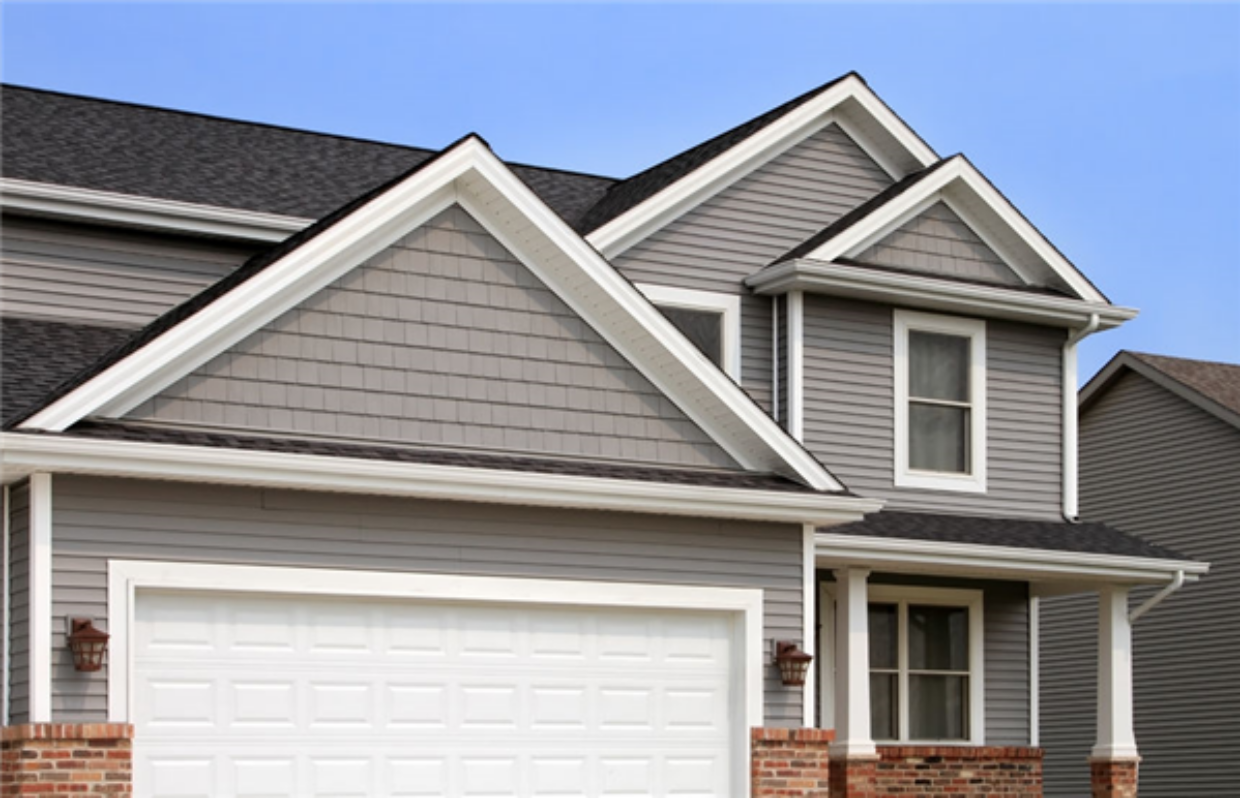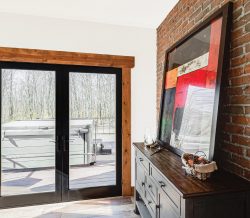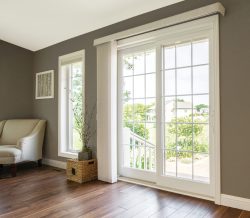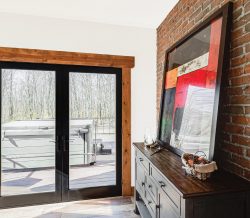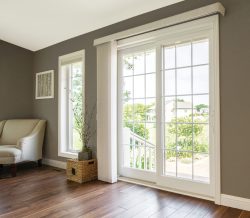
The Science Behind Energy-Efficient Windows: How They Work

Introduction
In commercial construction and design, energy-efficient windows have become a cornerstone in achieving sustainability and cost-effectiveness. These windows are not just about letting in light and offering views; they are sophisticated components that play a crucial role in the building’s overall energy performance. The science behind these windows sets them apart, transforming conventional glass panes into dynamic elements that contribute significantly to energy conservation and environmental responsibility.
Understanding how energy-efficient windows work is essential for architects, builders, and commercial property owners. These windows go beyond the basic function of providing transparency and have become integral in designing aesthetically pleasing and environmentally conscious buildings. As we delve into the mechanisms that make windows energy-efficient, we’ll uncover the importance of choosing the right USA windows and doors and windows companies near me.
The Technology of Energy-Efficient Windows
The core technology behind energy-efficient windows lies in their ability to control heat transfer, light penetration, and UV radiation. This is achieved through various means, including special coatings, multiple glass panes, inert gas fillings, and high-quality framing materials
Another aspect is double or triple-glazing, where two or more glass panes are separated by a space filled with inert gas like argon or krypton. This design drastically reduces heat transfer and noise levels, creating a more comfortable and productive environment inside commercial buildings. These technological advancements make modern windows far more efficient than their traditional counterparts and are a key factor for businesses looking to reduce energy costs.
Benefits of Energy-Efficient Windows in Commercial Spaces
The implementation of energy-efficient windows in commercial buildings brings a multitude of benefits. Firstly, they significantly reduce energy consumption, leading to lower utility bills. This is a crucial factor for businesses aiming to cut operational costs. By minimizing the need for artificial heating and cooling, these windows help in creating a more sustainable and eco-friendly building.
Additionally, energy-efficient windows contribute to a more comfortable workplace. They help reduce glare and control indoor temperatures, enhancing employee productivity and comfort. Moreover, by blocking harmful UV rays, these windows protect interior furnishings and materials from fading, prolonging their lifespan and maintaining the aesthetic appeal of the commercial space.
The Role of Window Installer Jobs in Energy Efficiency
The installation of energy-efficient windows is as crucial as their manufacturing. Window installer jobs play a pivotal role in ensuring that these windows perform at their optimal level. Professional installers are trained to handle the specific requirements of energy-efficient windows, such as proper sealing and insulation, which are critical in preventing air leaks and thermal bridging.
Skilled window installers from local window companies understand the nuances of fitting these advanced windows into commercial buildings. Their expertise ensures the windows are installed correctly, providing the maximum energy efficiency benefits. The right installation can make a significant difference in the performance of energy-efficient windows, making hiring experienced professionals for the job essential.
Selecting the Right Energy-Efficient Windows for Commercial Use
Several factors need to be considered when choosing energy-efficient windows for commercial buildings. The selection process involves understanding the specific needs of the building, such as its orientation, local climate, and architectural design. Quality windows appropriate for the building’s location and purpose can dramatically enhance its energy performance.

It’s important to consult with knowledgeable companies near me or in your area to determine the best energy-efficient windows for your commercial space. Factors like glazing type, frame material, and overall window design should align with your building’s energy goals. Additionally, considering affordable windows that meet energy efficiency standards can provide a cost-effective solution without compromising performance.
Understanding U-Values and Energy Ratings in Windows
A key aspect of selecting energy-efficient windows for commercial spaces is understanding their U-values and energy ratings. The U-value measures the window’s ability to conduct heat; the lower the U-value, the better the window prevents heat transfer. This metric is crucial in colder climates where retaining heat within the building is essential. Energy ratings ranging from A to G provide a comprehensive understanding of a window’s overall efficiency, considering factors like air leakage and solar gain.
These ratings are a quick way to assess how well a window will perform regarding energy conservation. While potentially more expensive initially, a high-rated window can lead to significant energy savings over time. Commercial property owners need to consult with reputable local window companies to find windows with optimal U-values and energy ratings suited to their specific climate and building requirements.
Impact of Frame Materials on Window Efficiency
The frame material of a window significantly impacts its energy efficiency. Common materials include wood, vinyl, aluminium, and fibreglass, each offering different insulation levels and thermal performance. Wood frames are excellent insulators but require more maintenance. Vinyl frames are low-maintenance and provide good insulation, while fibreglass frames offer high durability and thermal efficiency. Aluminium frames, though less insulating, are strong and suit modern architectural designs.
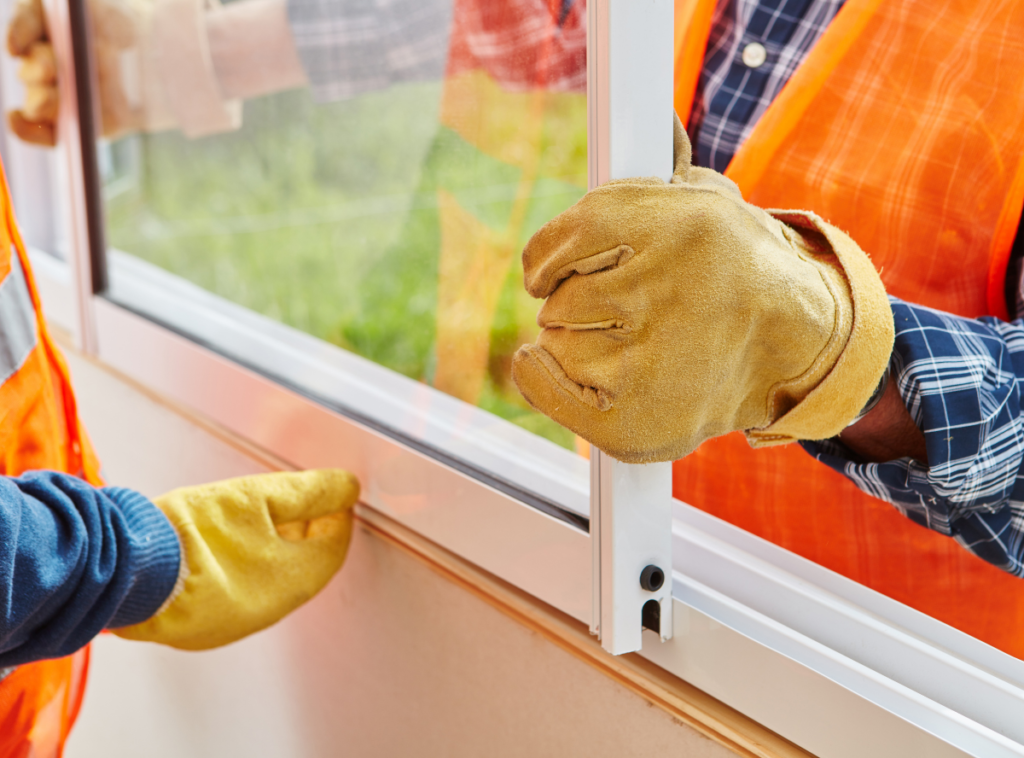
The choice of frame material can also affect the overall cost of the window. While some materials, like aluminium, are more affordable, they offer a different level of energy efficiency than others, like fibreglass. In commercial buildings, where large expanses of windows are common, selecting the right frame material balances thermal performance, maintenance needs, durability, and aesthetic preferences.
Conclusion
Energy-efficient windows are a crucial component in the modern commercial building landscape. Their ability to reduce energy consumption, enhance indoor comfort, and contribute to environmental sustainability makes them an essential feature in commercial architecture. Understanding the science behind these windows, from U-values and energy ratings to frame materials and glazing technologies, is key to making informed decisions.
Investing in the right energy-efficient windows can lead to significant long-term financial and environmental benefits for commercial property owners and builders. Collaborating with reputable local window companies, understanding the specific needs of your building, and choosing windows that offer the best balance of efficiency, affordability, and quality will ensure that your commercial property stands out as a model of energy efficiency and modern design.



